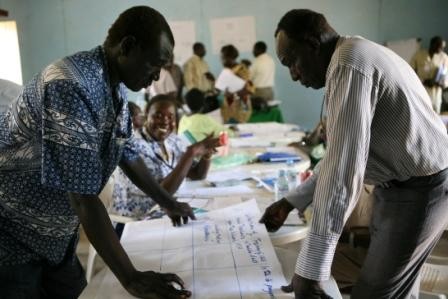Definition
According to the UNDP, in the global context, capacity refers to the ability of individuals and institutions to make and implement decisions and perform functions in an effective, efficient and sustainable manner. At the individual level, capacity building refers to the process of changing attitudes and behaviours-imparting knowledge and developing skills while maximizing the benefits of participation, knowledge exchange and ownership. At the institutional level it focuses on the overall organizational performance and functioning capabilities, as well as the ability of an organization to adapt to change. It aims to develop the institution as a total system, including individuals groups and the organization itself. UNDP sees capacity development as the process through which individuals, organizations and societies obtain, strengthen and maintain the capabilities to set and achieve their own development objectives over time. One of the major challenges of the capacity building process is to overcome the "entrapment effect". This entrapment is reflected by a reluctance of the stakeholders towards involvement or towards new approaches that are unknown and require changes in the mindset and the lifestyle.(Coastal Wiki, The Capacity Building Concept, accessed on Sept. 2016)
Co-benefits and impacts
Βελτιώνει την συμμετοχή των συμφεροντούχων.Definition (GR)
Σύμφωνα με το “Πρόγραμμα των Ηνωμένων Εθνών για την Ανάπτυξη” (UNDP), στο παγκόσμιο περιβάλλον, η «ικανότητα» αναφέρεται στην δυνατότητα των ατόμων και των οργανισμών να πάρουν και να εφαρμόσουν αποφάσεις, και να εκτελούν λειτουργίες με αποτελεσματικό, αποδοτικό και βιώσιμο τρόπο. Σε ατομικό επίπεδο, η ανάπτυξη ικανοτήτων αναφέρεται στη διαδικασία αλλαγή στάσεων και συμπεριφορών -μεταφορά γνώσης και ανάπτυξής δεξιοτήτων, μεγιστοποιώντας παράλληλα τα οφέλη της συμμετοχικότητας, της ανταλλαγής γνώσεων και της κυριότητας. Σε θεσμικό επίπεδο επικεντρώνεται στην συνολική οργανωτική απόδοση και λειτουργική ικανότητα, καθώς και στην ικανότητα ενός οργανισμού να προσαρμόζεται στις αλλαγές. Στοχεύει στο να αναπτυχθεί ο οργανισμός ως ένα ολιστικό σύστημα, συμπεριλαμβανομένων των ομάδων του προσωπικού, καθώς και του ίδιου του οργανισμού. Ο UNDP θεωρεί την ανάπτυξη ικανοτήτων ως τη διαδικασία μέσω της οποίας και με την πάροδο του χρόνου, τα άτομα, οι οργανισμοί, και οι κοινωνίες αποκτούν, ενδυναμώνουν και διατηρούν τις ικανότητες να καθορίζουν και να επιτυγχάνουν τους δικούς τους αναπτυξιακούς στόχους. Μία από τις σημαντικότερες προκλήσεις της διαδικασίας ανάπτυξης ικανοτήτων είναι να ξεπεραστεί το «φαινόμενο της αυτοπαγίδευσης». Η παγίδευση αυτή αντικατοπτρίζεται στην απροθυμία των ενδιαφερόμενων μερών απέναντι στη συμμετοχή τους ή στις νέες προσεγγίσεις που είναι άγνωστες και απαιτούν αλλαγές στη νοοτροπία και τον τρόπο ζωής.(Coastal Wiki, The Capacity Building Concept, accessed on Sept. 2016)
Problem types
Problem types for which this measure can be applied.
Scales
Scales to which this measure can be applied.
Land uses
Land uses in which this measure can be applied.
Flood management measure
The parent measure, in terms of this measure being a subcategory of the parent one
Last modified: Feb. 13, 2020, 8:33 a.m.


 Ελληνικά
Ελληνικά
